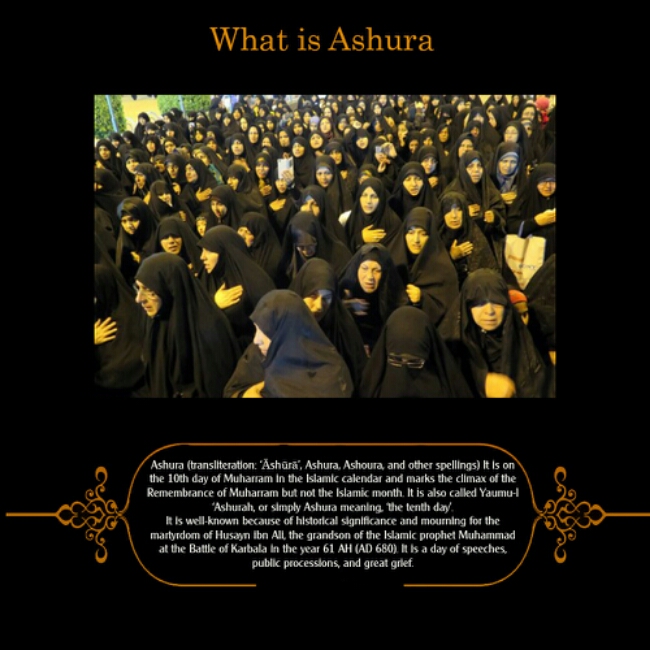| |
|
|
ضعفهای خواص عصر امام حسین(ع)
✳️ مهمترین عنصر برای ارائهی تحلیل درست از مسائل،آگاهی است. متأسفانه پس از رسول خدا(ص)، جامعه از اهلبیت(ع) که منبع آگاهی بودند، دور نگه داشته شدند؛ با این شعار که قرآن ما را بس است (حسبُنا کتاب الله)، درحالیکه رسول خدا(ص) فرموده بود: «کتابالله و عترتی».
💢 ما در جامعهی اسلامی، از صدر تا همین الآن، هم با ضعف تحلیل مواجه هستیم و هم با «فقدان تحلیل». این خودش عوامل متعددی دارد. یکی همان اندیشهی جبر بود که عرض شد. اندیشهی جبر جامعه را دعوت میکند به پذیرش «هرآنچه اتفاق میافتد». لذا افراد جامعه اصلاً تحلیل نمیکنند که یزید چهکسی است؟ و من بر چه اساسی باید ولایت یزید را بپذیرم؟ امام حسین(ع) در همینجا شروع کرد به روشنگری و فرمود وقتی «مثل یزید» فرمانروای امت اسلام شد، باید فاتحهی اسلام را خواند: «إِنَّا لِلَّهِ وَ إِنَّا إِلَیْهِ راجِعُونَ وَ عَلَى الْإِسْلَامِ السَّلَامُ إِذْ قَدْ بُلِیَتِ الْأُمَّةُ بِرَاعٍ مِثْلِ یَزِیدَ.» (ابناعثم، الفتوح، ج۵، ص۱۷). این تحلیل خیلی عمیقی است: اگر مثل یزید حاکم مسلمانان باشد، باید فاتحهی اسلام را خواند. اما متأسفانه جامعه با این تحلیل بسیار عمیق و دقیق و درست، خیلی خیلی فاصله داشت.
حجتالاسلام دکترمنتظری مقدم
موضوعات: ائمه, سخنان بزرگان, ashura, ashura
لینک ثابت
|
[سه شنبه 1396-07-04] [ 05:43:00 ب.ظ ]
|
|
🌺 ثواب گریه بر امام حسین(ع) 🌺
-امام رضا(ع) فرمودند:
🌻هر مؤمنی که به خاطر شهادت امام حسین(ع) گریه کند تا اشکش بر گونههایش جاری گردد، خداوند منان غرفهای در بهشت به او دهد که مدتها در آن ساکن گردد.
🌷و هر مؤمنی به خاطر آزاری که از دشمنان ما در دنیا به ما رسیده گریه کند تا اشکش بر گونههایش جاری شود، خداوند متعال در بهشت به او جایگاه شایستهای دهد
.
🌸و هر مؤمنی در راه ما اذیت و ازاری به او رسد پس بگرید تا اشکش بر گونههایش جاری گردد، خداوند متعال آزار و ناراحتی را از او بگرداند و در روز قیامت از غضب و آتش دوزخ در امانش قرار دهد
📚کامل الزیارات/صفحه ۳۲۲
موضوعات: مناسبتی, احادیث, ashura, ashura
لینک ثابت
 Hazrat Abulfadhl Al-Abbas’s loyalty was most clearly manifested when he went to the Euphrates River but abstained from drinking water. The well-known narration of the event, which is widely related to by the people, is that Imam Hussain (as) sent Hazrat Abulfadhl to fetch water. However, what I have read in authentic versions of the narration—like those of “Irshad” by Mufid and “Lohoof” by Ibn Tawous—is slightly different from the common narration, probably highlighting the significance of the event. In these authentic books it has been narrated that in the last moments, rather in the last hour, while thirst had compelled the little children so much–little girls and others in the camps–that Imam Hussain (as) and Abulfadhl (as) took it upon themselves and left together to fetch water. Hazrat Abulfadhl did not go alone, in other words; Imam Hussain (as) accompanied Abulfadhl towards the Euphrates River—a branch of the Euphrates which flowed through that region—in hopes of obtaining water for the camp site. Hazrat Abulfadhl Al-Abbas’s loyalty was most clearly manifested when he went to the Euphrates River but abstained from drinking water. The well-known narration of the event, which is widely related to by the people, is that Imam Hussain (as) sent Hazrat Abulfadhl to fetch water. However, what I have read in authentic versions of the narration—like those of “Irshad” by Mufid and “Lohoof” by Ibn Tawous—is slightly different from the common narration, probably highlighting the significance of the event. In these authentic books it has been narrated that in the last moments, rather in the last hour, while thirst had compelled the little children so much–little girls and others in the camps–that Imam Hussain (as) and Abulfadhl (as) took it upon themselves and left together to fetch water. Hazrat Abulfadhl did not go alone, in other words; Imam Hussain (as) accompanied Abulfadhl towards the Euphrates River—a branch of the Euphrates which flowed through that region—in hopes of obtaining water for the camp site.
These two courageous and strong brothers fought while backing each other on the battle field. Imam Hussain (as) was about sixty years old, but he was among famous unique men in terms of his power and courage. His brother Abulfadhl al-Abbas was in his 30’s with all these outstanding features known to everyone. These two brothers would fight side by side, and back to back, in the midst of the enemy’s army, moving into the waves of enemy lines, breaking them. They did so in order to reach to the Euphrates in hopes they could get some water. It was in the midst of this challenging battle that Imam Hussain realized, suddenly, that the enemy had created a gap between him and his brother Abulfadhl Al-Abbas. It was also in the midst of those tough moments that Abulfadhl got closer to water and reached the Euphrates. As it has been narrated, he filled the water pouch to take it back to the camp. Anyone would agree he had the right to drink a fistful of water to sooth his own thirst, but he demonstrated his loyalty in that moment.
When Abulfadhl Al-Abbas was filling his palms with water, when he looked at the water, he remembered Imam Hussain’s lips, dry from thirst; maybe he remembered the little girls and other children screaming out for thirst. Maybe he remembered Ali Asghar crying out for thirst and he could not allow himself to drink water. He poured the fresh water onto his hands, it seeped out and back into the river before he left. It was when he was leaving the river that the enemy targeted him, and all those horrible events unraveled. Suddenly Imam Hussain (as) heard his brother from the midst of the enemy’s army calling out to him: “O’ Brother! Help your brother!”
Ayatollah Khamenei, April 14, 2000
موضوعات: ashura, ashura
لینک ثابت
|
[سه شنبه 1396-05-24] [ 04:27:00 ب.ظ ]
|
|
 Imam’s horse didn’t move there, Imam (AS) asked: asked: What is the name of this land? They said: “Ghazryh". Imam (AS) asked the other name of land, they said: “Shaty Forat” . then Imam asked, Does this land have another name? They said: “it is also called Karbala". Imam (AS) sighed heavily and began to cry and said: “Annie Allhm Avz Alkrb and Albla’ my back.” By God, this is the land of Karbala, our men will be killed here, by God, our women and children are captive here, by God, our respect is demolished here. He said: ” javānmardān, come down. Our graves are here. Imam’s horse didn’t move there, Imam (AS) asked: asked: What is the name of this land? They said: “Ghazryh". Imam (AS) asked the other name of land, they said: “Shaty Forat” . then Imam asked, Does this land have another name? They said: “it is also called Karbala". Imam (AS) sighed heavily and began to cry and said: “Annie Allhm Avz Alkrb and Albla’ my back.” By God, this is the land of Karbala, our men will be killed here, by God, our women and children are captive here, by God, our respect is demolished here. He said: ” javānmardān, come down. Our graves are here.
Imam Hussain (AS) letter to the people of Kufa.
On this day, Imam Hussain (AS) wrote a letter to elders of Kufa wrote and gave it to Qays ibn Ms·hr Saidawi to send it to Kufa. Officers arrested Qays on the way and after he spoke too much against Yazid, killed him.
When Imam Hussain (AS) heard the news of the martyrdom of Qays, he cried and said: “Allhm Ajl Lena and Lshytna Ndk Mnzla Kryma, and Ajm Bynna and Fi-based Bynhm I Rhmtk Nk Qadir Ali object.”
Source: Shiite Calendar Book.
موضوعات: ashura, ashura
لینک ثابت
|
[چهارشنبه 1396-05-11] [ 11:38:00 ق.ظ ]
|
|

These days are days related to Hussein ibn Ali (greetings be upon him). They are days of enthusiasm and historical excitement for the Islamic Ummah. They are not particular to Shias. Non-Shias too consider the movement of Hussein ibn Ali (God’s greetings be upon him) as a great, magnificent and instructive movement and model for nations. I am speaking about those who are familiar with this movement. I am not speaking about those people who are not familiar with it. As for our people, one of their sources of pride is familiarity with the Master of Martyrs and Karbala. They are familiar with the important matters that occurred after or during Ashura.
These days are days of Zaynab al-Kubra (God’s greetings be upon her). Zaynab al-Kubra (God’s greetings be upon her) is the same person who kept the event of Ashura alive. She prevented it from being consigned to oblivion or becoming outdated with the political deceptions of the ruling system of those days. It was Zaynab al-Kubra (God’s greetings be upon her) who kept the event alive. Therefore, these are important days.
The historical period that we are in is an important period. The people of Iran are establishing their dignity and formulating their main roadmap for progress towards ideals. Therefore, the youth’s awareness is important. Their acumen about the current conditions is important and this gathering is an opportunity for speaking – to some extent – about such matters.
موضوعات: ashura, ashura
لینک ثابت
|
[پنجشنبه 1396-05-05] [ 09:24:00 ق.ظ ]
|
|
|
|
|



